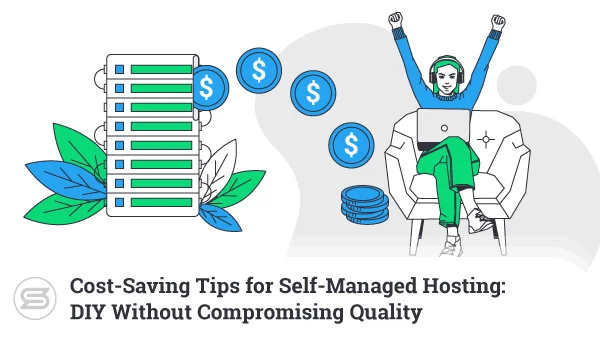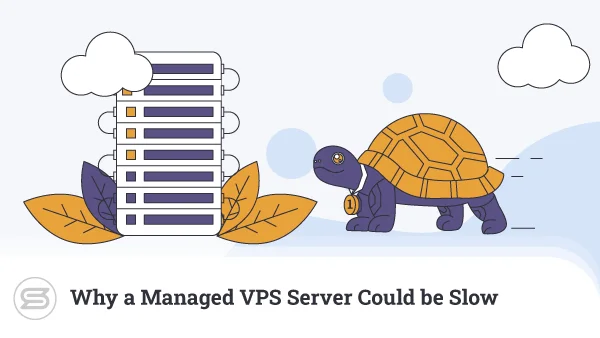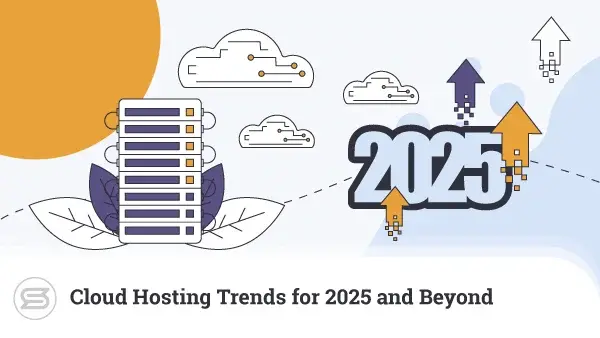Podcasts are everywhere these days. Everyone is either listening to or making one. If you’ve ever been tempted to dip your toes in this niche, you’re probably wondering where to start from. Before you get all the equipment and start jotting ideas enthusiastically, you need to think about how you plan to share your show with the world.
So, first things first:
But there are many options on the market. How should you choose?We’re here to help. Managed VPS hosting is great for podcast networks and hosting and distributing shows. In this article, we’ll discuss its benefits and how you can achieve all your podcasting goals.
Introduction to Managed VPS Hosting for Podcast Networks
Let’s first explain what managed VPS actually is.
In a VPS environment, several users get isolated accounts with dedicated resources on the same server. You get individual CPU, RAM, and storage and won’t need to worry about someone else taking over your share of resources.
Managed means you get a dedicated team to take care of your server. That doesn’t mean you get less control, though. While the experts configure the basics for you, you’re free to customize the environment.
The support team will also monitor for potential issues, as well as your resource usage. They will notify you when it’s time to scale and add more resources, which is quite easy with a cloud VPS package.
Having someone to take care of your server means you can dedicate more time to developing your podcast project. You’ll also be armed with the necessary resources to launch it and have the freedom to add more processing power when it starts gaining traction.
Selecting the Right VPS Configuration for Podcast Networks
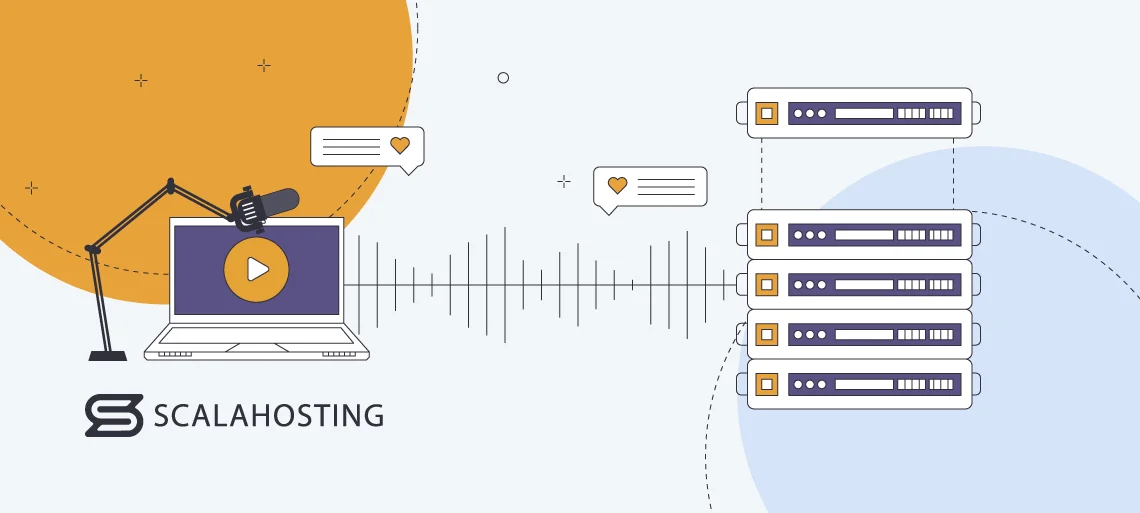
When choosing the right VPS hosting for your podcast, your first step would be creating a realistic development plan. Carefully consider your CPU power, RAM, storage, and network needs. Choosing a vendor that offers more flexibility in terms of resources will benefit you in the long run. You’re going to need a hosting environment that allows you to expand and meet the demands of your audience.
The expertise of the support team is also crucial for any managed VPS user. Your host can immensely help in setting up the environment and optimizing it for maximum speeds.
Managed VPS Hosting vs. Other Hosting Options for Podcasts
Usually, shared hosting is recommended for those just starting with their project. Recently, though, the price difference between shared and VPS packages has become less significant. In an almost equal race, the former easily falls behind in terms of resources.
Once your podcast takes off, you’ll need adequate CPU power, RAM, storage, and network capabilities to handle the demand. With a managed VPS hosting plan, you get dedicated hardware resources. You’re guaranteed enough memory for caching and handling data efficiently, the necessary CPU, and the required storage.
The main benefit is that you can add and remove resources when necessary. This will allow you to handle traffic spikes, like when you have an episode discussing popular topics or a famous guest. Managed means you’ll get a whole team taking care of your server. This gives you the freedom to dedicate more time to your project.
You can also choose a dedicated server, but that’s recommended only after your podcast has taken off and garnering a big worldwide audience.
Podcast Content Management Systems (CMS)
Finding a good podcast CMS platform that fits your needs is crucial. Here are the main things you need to be looking out for:
- Ease of use
- Storage
- Analytics
- Sharing features
- Visibility
- Distribution options
- Monetization options
One of the best options is WordPress. Although not many people associate the CMS with podcasts, it has much to offer in that department. WordPress allows a plethora of plugins for enhanced functionality to be added, making it a popular choice for managing this type of content. The CMS is also pretty easy to configure and use, making it perfect for everyone, even beginner podcasters.
There are, of course, specialized podcast hosting platforms, such as Libsyn and Podbean. They provide podcaster-friendly features tailored to help you seamlessly organize your content, including its distribution and analytics. Spotify for Podcasters is another popular option, offering free and unlimited hosting.
Media Hosting and Streaming
For your listeners to enjoy your podcast episodes, the media files are compressed into smaller data packages, which are, in turn, hosted and distributed from a web server.
You need to choose a podcast hosting service that is resource-rich. If you’re just starting out, you’ll need it to also be budget-friendly.
Virtual private servers are both of the above, perfect for media streaming. If you choose a managed package, you’ll get an isolated account on a physical server with a desired OS and control panel. It’s up to you to customize the environment and add the elements you deem necessary for your podcast website to thrive.
Keep in mind that large audio and video files can strain server resources. That’s why you need to implement compression techniques and streaming protocols, such as:
- HTTP
- RTMP
- RTSP
- MPEG-DASH
- HLS
Podcast Distribution and Syndication
Syndication is the process of distributing a podcast across multiple platforms, such as Apple Podcasts, Spotify, and Google Podcasts. This is done via RSS (Really Simple Syndication) feeds.
Here’s how this works:
A creator would upload their audio files to a podcast hosting site. They then create an RSS feed for their show. It’s a type of web file that includes information about the project, images, episode guides, and a link to the newest audio file. When a listener subscribes to your podcast via an app, it will check the RSS feed and automatically download or stream new episodes for them. You can discuss creating an RSS feed with your hosting vendor, and once it’s ready – you can submit it to podcast directories.
IMPORTANT: Make sure you provide accurate metadata when creating an RSS feed. That’s the information that describes your podcast. Title and creator name aside, carefully consider things such as category, catchy description, and relevant tags.
Website Development for Podcast Networks
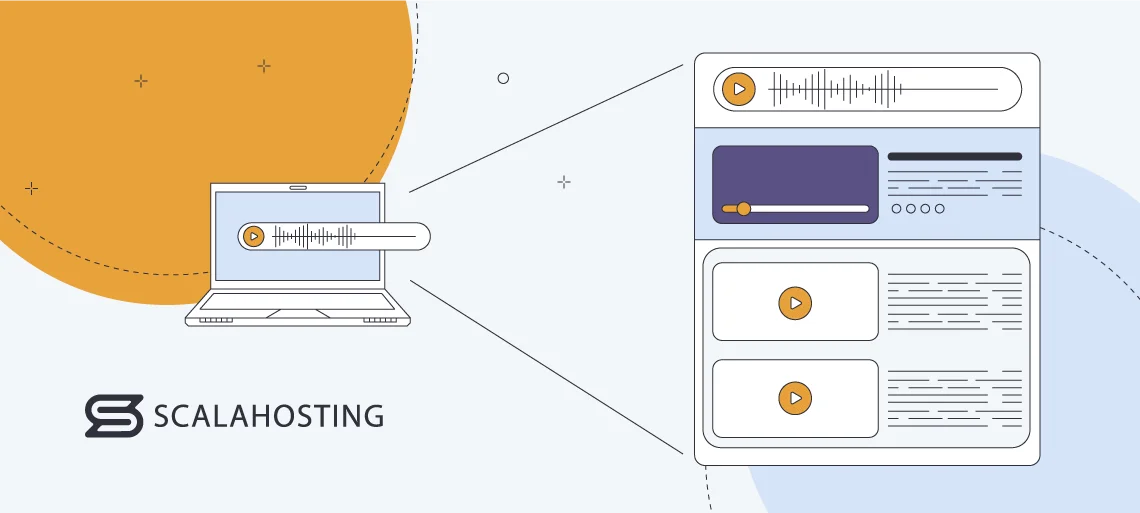
You might think that uploading your podcast to the most popular directories is enough.
It’s not.
A website will give you a way to create your own branding and showcase everything related to your podcast – donations options, RSS feed, merchandise, etc. That way, you’ll have a centralized hub to present to subscribers.
A podcast website will enable you to nurture a better relationship with your listeners. It will also improve your SEO and Google rankings – the search engine is one of the main ways people discover podcasts. Last but not least – you’ll be able to track the traffic of your website, which can help you develop better marketing strategies.
Creating a website is easy. If you’re a beginner, you can always rely on content management systems such as WordPress or Joomla. You can also start from scratch and use HTML and CSS if you have more experience. Whichever you go for, make sure not to overload your website with unnecessary images, videos, audio, and thousands of pages. A clean and intuitive design is paramount.
With most CMS solutions, you’ll be able to add subscription options, audio players, show notes, and more via plugins. Don’t forget to add your podcast’s social media profiles as well – the more platforms you integrate to reach your audience, the better.
Data Analytics and Podcast Performance
Analytics tools will help you understand your audience’s behavior. Tracking download statistics and listener demographics provides valuable insights for refining content and marketing strategies.
It is also crucial for understanding how to communicate with your listeners and what types of content they gravitate towards. Blubrry, Captivate, and Megaphone by Spotify are all good options.
As for the metrics, you’ll need to analyze:
- Subscriber count
- Average listening time
- Listeners per episode
- Repeat listeners
- Downloads per episode
- Listener demographics
- Devices used by subscribers
Hosting management platforms can also help you track the visitors to your podcast website. For example, ScalaHosting’s SPanel has a Web Statistics function that will show your unique visitors, viewers’ operating systems, browsers, and more.
Scalability for Growing Podcast Audiences
One of the easiest ways to grow your podcast audience is to produce content regularly. Make a schedule and stick to it. Also, use social media to promote your episodes and reach out to other creators for cross-promotion.
Your audience will grow with time, and you’ll need to scale your hosting plan to handle the traffic. One of the main benefits of Managed VPS packages is flexibility.
You can add and remove resources, which enables you to keep optimal performance during traffic spikes. This also means you’ll only be paying for what you’re using. The support team will keep an eye on your resources and tell you when it’s time to scale.
It’s always a good idea to look for Managed VPS packages with a load-balancing feature. This type of service will redirect traffic between two or more servers with the same content, avoiding website crashes or lagging in case of a traffic spike.
Podcast Monetization and Sponsorship Integration
Integrating sponsorships and advertising seamlessly within podcast episodes is a common strategy for monetization. The revenue stream will help you develop your project and reach a wider audience. The usual scenario is a brand paying a podcaster to mention or discuss its product.
A good idea is to use tools to calculate your estimated sponsorship rates. They take into consideration things like engagement rates, demographics, downloads, etc. Podcorn and Podcast Influencer are good examples of such tools.
Ads are another easy way to monetize your podcast. You can use platforms like AdvertiseCast to add your project and choose advertisers.
And last but not least, you can take donations from your listeners. Integrating platforms such as Patreon and Buy Me a Coffee into your website is a good idea. That way, you can present your audience with options should they choose to support you.
Podcast Network Collaboration and User Engagement
Collaborating with other podcast hosts for mutual growth and increased audience reach is a great strategy. It’s also great for boosting user engagement. After all, you’ll be introducing your content to a whole new audience.
And it doesn’t have to be anything spectacular either – sometimes, a simple shoutout or a quote would do the work. Once you’ve built your listener base, you can be a guest or co-host an episode with other creators.
There are also other ways to use cross-promotion to drum up user engagement:
- Social media – posting segments of your content, asking your followers what they’d like to listen to, and connecting with other creators are just a few ways to utilize social media.
- Feed drop – a popular term among podcasters; one creator inserts another’s audio into an episode as a form of promotion.
- Live streams – a good way to connect with your audience, get ideas for future episodes, and get feedback about your project.
Managed VPS with ScalaHosting
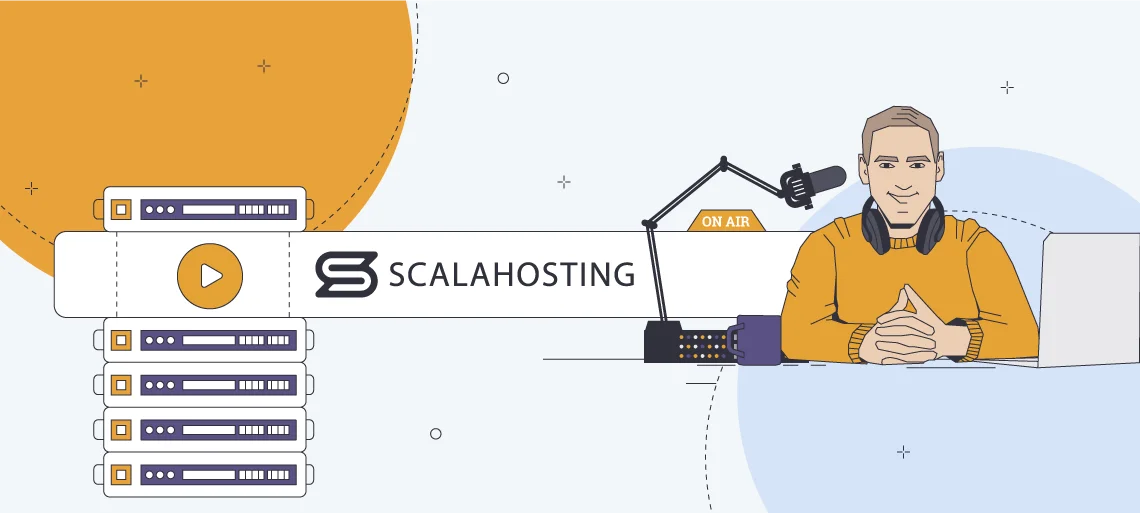
There are quite a few managed VPS hosting options, but how are you to find the right one?
Look no further.
ScalaHosting has the perfect Managed VPS hosting plans to help you reach your podcasting goals. You can customize the environment to fit your exact needs and budget. As the time comes, you can easily scale up and add more resources.
Thanks to SPanel – our in-house developed web hosting control panel, you can also track your resource usage. Thanks to SPanel, you also get direct access to Softaculous – an auto-installer that will enable you to get the necessary CMS to create your podcast website with just a few clicks.
Your security is also guaranteed. Our plans include the AI-powered SShield, SPAM protection, IP address monitoring, SSL certificates, and more. Our team of experts will take care of your server and be available 24/7 to answer your hosting inquiries.

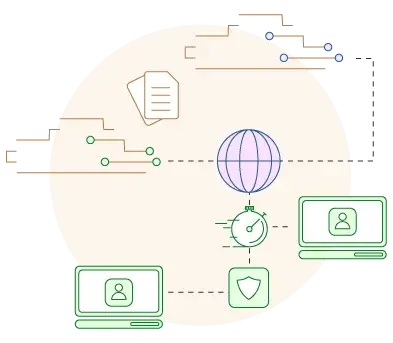
Wrap Up
Managed VPS hosting provides the best possible building ground for your podcast. It offers the performance, scalability, and control needed for successful podcast hosting and promotion. By carefully considering VPS configurations, utilizing effective CMS platforms, and implementing strategic distribution and engagement tactics, you can take your project to the next level.
All you have to do now is start!
FAQ
Q: Is it expensive to host a podcast?
A: The price of hosting your podcast depends entirely on the resources you need. In the beginning, you’ll need fewer, but as your audience starts to grow, you’ll surely need more storage and operating memory, for example. That will raise the prices. The good news is that VPS hosting enables you to add and remove resources, and the cost won’t break the bank.
Q: Do I need a website to host a podcast?
A: You don’t need a website to host and distribute your podcast. You can use Spotify, Soundcloud, Podbean, or similar platforms. However, having a website gives you the freedom to launch marketing campaigns, promote content, get new listeners, and keep your audience informed overall.
Q: What is the biggest podcast platform?
A: At the time of writing, Spotify is the biggest podcast platform. It currently hosts around five million titles, according to its website. As of June 2023, it also features more than 100,000 video podcasts.


